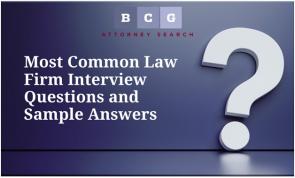This comprehensive guide to becoming a top-rated attorney outlines the essential steps and skills needed for legal professionals aiming for excellence. From acquiring a solid legal education and mastering critical lawyering skills to leveraging the latest legal technologies and fostering strong client relationships, this article offers actionable strategies and real-life examples to navigate the competitive legal landscape successfully. It also emphasizes the importance of maintaining a healthy work-life balance, utilizing effective stress management techniques, and creating a supportive professional environment. Whether you're a law student, a practicing lawyer, or someone looking to enhance their legal career, this guide provides valuable insights and practical advice to help you achieve and sustain top-rated status in the legal profession.

Embarking on the path to becoming a top-rated attorney is akin to setting out on a grand expedition. It demands not only a profound dedication to mastering the intricacies of the law but also a steadfast commitment to personal and professional development. This journey is punctuated by milestones like acquiring a robust legal education, honing essential lawyering skills, and building a network that supports and propels your career forward.
Success in the legal profession transcends the mere acquisition of credentials; it encompasses the continuous expansion of one's knowledge base, the practical application of law, and the development of a professional persona that resonates with clients, peers, and the broader legal community. This guide aims to map out the essential steps and skills aspiring attorneys need to cultivate to navigate this challenging yet rewarding path effectively.
Legal Education and Certifications
Juris Doctor (JD) Programs
The cornerstone of a legal career begins with obtaining a Juris Doctor (JD) degree from an accredited law school. This endeavor not only lays the foundational knowledge of the law but also sharpens critical thinking and analytical skills. Selecting a law school should be a deliberate decision, taking into account factors such as faculty expertise, available resources, special programs, and the opportunity to engage in practical experiences like clinics and internships.Bar Exam Preparation
Achieving success on the bar exam is a monumental step in an attorney's career, acting as the gateway to legal practice. Preparation for the bar should be approached with a strategy that includes comprehensive study plans, participation in bar prep courses, and the diligent review of past exam questions. Cultivating a routine that balances study with well-being can significantly impact your performance.Continuing Legal Education (CLE)
The legal landscape is perpetually evolving, making Continuing Legal Education (CLE) vital for staying abreast of new laws, regulations, and practice techniques. Engaging regularly in CLE activities not only fulfills professional requirements but also enriches an attorney's skill set and marketability. Whether through seminars, workshops, or online courses, CLE is a valuable resource for lifelong learning and career advancement.See Related Articles:
- Pursuing a JD After Establishing a Career in Another Industry?
- Why Law School Grades Do Not Matter Forever
- What is Bar Reciprocity and Which States Allow You to Waive Into the Bar?
Gaining Practical Experience
Legal Internships
Practical experience is invaluable in the legal profession. Legal internships provide a window into the workings of the legal system, offering first hand exposure to the challenges and rewards of legal practice. These experiences are crucial for developing practical skills, understanding client needs, and forging connections that can influence future career opportunities. Internships can vary widely, from positions with non-profit organizations advocating for social justice to summer associate roles at prestigious law firms.Clerkship Opportunities
Serving as a clerk, particularly for a judge, offers an unparalleled perspective on the judicial process. Clerkships are esteemed positions that allow emerging attorneys to observe litigation and decision-making up close, offering a unique vantage point from which to understand the intricacies of legal arguments and judicial reasoning. These roles are not only prestigious but also instrumental in developing a nuanced understanding of the law.Developing Professional Skills
Professional skills are the bedrock upon which a successful legal career is built. Mastery in these areas distinguishes top-rated attorneys from their peers, enabling them to provide exceptional service to their clients and gain recognition in the field.
Legal Research and Writing
Legal research and writing are indispensable skills for any attorney. Effective legal research enables attorneys to find and interpret relevant statutes, case law, and regulatory materials to support their client's position. Strong writing skills are equally crucial, as the ability to communicate complex legal arguments clearly and persuasively can make the difference in court decisions and negotiations.Actionable Strategies:
- Practice Regularly: Engage in writing as often as possible, whether drafting memos, briefs, or articles for legal publications.
- Seek Feedback: Constructive criticism from mentors or peers can provide invaluable insights into improving your writing.
- Stay Current: Keep abreast of legal developments and emerging trends in legal research and writing techniques.
Trial Advocacy and Negotiation Techniques
Trial advocacy and negotiation are art forms that top-rated attorneys master over time. Being an effective advocate involves understanding the nuances of courtroom dynamics, presenting evidence compellingly, and engaging with judges and jurors on a profound level. Negotiation skills are equally critical, as much of legal practice involves resolving disputes outside the courtroom.Real-Life Example: The legendary litigator Gerry Spence never lost a criminal case and attributed his success to his ability to connect with jurors on a human level, showcasing the power of persuasive storytelling and emotional engagement.
Actionable Strategies:
- Participate in Mock Trials: Gaining simulated courtroom experience can hone your advocacy skills.
- Attend Workshops: Workshops led by experienced litigators can provide insights into effective negotiation and advocacy strategies.
- Practice Active Listening: This is crucial in understanding the opposition's position and formulating compelling counterarguments.
Client Communication Skills
Effective communication with clients is paramount for building trust and understanding their needs. Top-rated attorneys excel in explaining complex legal concepts in understandable terms, ensuring clients are informed and comfortable with their legal strategy.Actionable Strategies:
- Develop Empathy: Understanding your client's perspective can improve communication and foster a stronger attorney-client relationship.
- Stay Accessible: Regular updates and availability to answer questions reassure clients and build confidence in your representation.
- Solicit Feedback: Encouraging clients to share their concerns and suggestions can enhance service and satisfaction.
Legal Ethics and Professionalism
Adherence to legal ethics and professionalism is non-negotiable. It not only ensures compliance with regulatory standards but also builds a reputation of integrity and reliability.Real-Life Example: The fall of Enron and the subsequent legal battles underscored the importance of ethical vigilance in legal practice, highlighting how lapses in ethical judgment can lead to catastrophic consequences for firms and their clients.
Actionable Strategies:
- Continual Education: Stay updated on changes in ethical guidelines and professional standards.
- Join Professional Associations: Membership in organizations like the American Bar Association can provide resources and forums for discussing ethical dilemmas.
- Mentorship: Seek guidance from seasoned attorneys to navigate complex ethical situations.
See Related Articles:
- These 8 Tips Will Make New Attorneys More Effective Communicators
- The Power of Self-Awareness and Positive Thinking during Your Job Search
- The Top Three Qualities Warren Buffett Looks for When Hiring Attorneys, Managers, and Others
- In-Demand Skills for Attorneys: What Law Firms Want in Their Hires
Career Development and Networking
Career advancement in law is significantly influenced by networking and professional development efforts. Building a robust professional network and continuously seeking opportunities for growth are key strategies for aspiring top-rated attorneys.
Networking for Lawyers
Networking is more than exchanging business cards; it's about building meaningful relationships that can support and advance your career. Whether through professional associations, alumni events, or legal seminars, every interaction is an opportunity to expand your professional circle.Actionable Strategies:
- Leverage Social Media: Platforms like LinkedIn can be powerful tools for connecting with legal professionals worldwide.
- Engage in Professional Organizations: Active participation in legal organizations can provide networking opportunities and professional development resources.
- Offer Value: Networking is a two-way street. Providing assistance and sharing knowledge can establish you as a reliable and generous colleague.
Law Firm Career Paths
Understanding the hierarchical structure and career progression opportunities within law firms can help you navigate your career path more effectively. From associate to partner, each level comes with its own set of responsibilities, expectations, and rewards.Actionable Strategies:
- Set Clear Goals: Understanding what you want to achieve in your career can help you make strategic decisions about the opportunities you pursue.
- Seek Mentorship: A mentor who is further along in their career can provide guidance, advice, and opportunities to advance.
Legal Industry Trends
Staying informed about trends in the legal industry is crucial for adapting to changes and seizing new opportunities. Whether it's technological advancements, shifts in legal demand, or changes in regulatory landscapes, being ahead of the curve can give you a competitive edge.Actionable Strategies:
- Attend Industry Conferences: These can be excellent sources of information on current and future trends.
- Read Widely: Stay informed through legal journals, blogs, and news sources focused on the legal industry.
Leveraging Legal Technology
The legal profession is increasingly embracing technology, with innovations that streamline case management, research, and client communication. Understanding and utilizing these tools can set you apart as a forward-thinking attorney.
Case Management Software
Research-Backed Insight: A 2021 Legal Trends Report highlighted that law firms utilizing case management software saw a significant increase in efficiency, allowing attorneys to spend more time on billable work and less on administrative tasks.Actionable Strategies:
- Evaluate and Select Software: Research and choose case management software that aligns with your firm's size, practice areas, and specific needs.
- Train Regularly: Invest time in learning the ins and outs of your chosen software through webinars, tutorials, and training sessions.
- Integrate with Other Tools: Maximize efficiency by integrating your case management software with other tools such as email, billing, and document management systems.
Legal Tech Innovations
Artificial Intelligence (AI) and blockchain are among the innovations transforming legal practice, from automating document review to enhancing contract management and security.Real-Life Example: AI-powered tools like ROSS Intelligence have revolutionized legal research by providing faster and more accurate case law results, demonstrating the potential of AI to augment traditional legal processes.
Actionable Strategies:
- Stay Informed: Follow legal tech blogs, attend industry conferences, and participate in webinars to keep up with the latest innovations.
- Experiment and Adapt: Be open to experimenting with new technologies on smaller projects to gauge their effectiveness before wider implementation.
- Network with Tech Experts: Building relationships with legal tech experts can provide valuable insights and recommendations on technology solutions.
Building a Strong Professional Reputation
A top-rated attorney's reputation is built on more than just legal victories; it encompasses professional integrity, expertise, and the ability to deliver exceptional client service.
Legal Awards and Honors
Being recognized by prestigious legal awards can significantly enhance your credibility and visibility in the legal community.Research-Backed Insight: A survey by a major legal publication found that attorneys who had received industry awards reported a noticeable increase in client inquiries and engagements.
Actionable Strategies:
- Nominate Yourself or Peers: Don't hesitate to nominate yourself or deserving colleagues for awards. Recognition can lead to new opportunities and enhanced professional standing.
- Highlight Achievements: Include awards and honors in your bio, on your firm's website, and in social media profiles to enhance your professional image.
- Participate in Industry Associations: Active involvement in legal associations can increase your visibility and chances of being recognized with awards.
Online Presence for Lawyers
A strong online presence can be a powerful tool for building and maintaining your professional reputation.Actionable Strategies:
- Optimize Your LinkedIn Profile: Ensure your LinkedIn profile is complete and reflects your latest achievements, skills, and endorsements.
- Contribute to Legal Blogs and Journals: Publishing articles on reputable legal blogs or in industry journals can establish you as a thought leader in your area of expertise.
- Engage on Social Media: Regularly sharing insights, updates, and professional achievements on social media platforms can enhance your visibility and reputation.
Legal Thought Leadership
Establishing yourself as a thought leader involves sharing your knowledge and insights with the wider legal community, thereby contributing to the profession's growth and evolution.Real-Life Example: Renowned legal scholar and attorney Erwin Chemerinsky frequently publishes articles and books on constitutional law, influencing public discourse and legal education.
Actionable Strategies:
- Speak at Conferences: Seek opportunities to speak at legal conferences and seminars. This can elevate your profile and allow you to share your expertise with a broader audience.
- Publish Regularly: Write articles, blog posts, or even books on topics where you have deep expertise. Regular publication can solidify your status as an expert.
- Mentor Younger Lawyers: Sharing your knowledge and experience with emerging attorneys can help shape the future of the profession while enhancing your reputation.
Enhancing Client Relations
The relationship between an attorney and their clients is pivotal. Top-rated attorneys understand that their approach to client relations can significantly affect their practice's success and reputation.
Client Acquisition Strategies
Research-Backed Insight: A study by the Legal Services Corporation found that personal referrals remain the leading way clients find attorneys, highlighting the importance of maintaining strong relationships not only with clients but also within your network.Actionable Strategies:
- Personalize Your Approach: Tailor your communication and services to meet the unique needs of each client, showing them that they are valued.
- Request Referrals: Encourage satisfied clients to refer others to your practice. Consider implementing a referral program that rewards clients for bringing new business.
- Leverage Online Marketing: Utilize SEO-optimized content, targeted ads, and social media to attract potential clients actively searching for legal assistance.
Client Satisfaction and Retention
Ensuring client satisfaction is essential for retention and building a positive reputation. Satisfied clients are more likely to return for future legal needs and recommend your services to others.Real-Life Example: The law firm of Gibson Dunn & Crutcher LLP has repeatedly been recognized for its exceptional client service, illustrating the firm's commitment to not just meeting but exceeding client expectations.
Actionable Strategies:
- Implement Feedback Loops: Regularly solicit and act on client feedback to improve your services continuously.
- Communicate Regularly and Transparently: Keep clients informed about the progress of their cases, potential challenges, and realistic outcomes.
- Offer Value Beyond Legal Services: Provide clients with additional resources, such as guides or workshops on relevant legal issues, to add value to your services.
Maintaining Work-Life Balance
The demands of a legal career can often seem at odds with maintaining a healthy work-life balance. However, achieving this balance is critical for long-term success and well-being.
Time Management for Attorneys
Effective time management allows attorneys to meet the demands of their profession while also making time for personal interests and relaxation.Actionable Strategies:
- Prioritize Tasks: Use tools like the Eisenhower Box to distinguish between tasks that are urgent, important, both, or neither.
- Delegate When Possible: Delegate tasks that do not require your expertise to paralegals or junior attorneys, freeing up time for more complex matters.
- Utilize Technology: Adopt time-management and productivity apps to streamline your workflow and reduce time spent on administrative tasks.
Stress Management in the Legal Profession
The high-pressure environment of legal practice makes stress management an essential skill for attorneys aiming for longevity in their careers.Research-Backed Insight: A study published in the Journal of Legal Education noted that mindfulness and meditation could significantly reduce stress and improve focus and efficiency among lawyers.
Actionable Strategies:
- Incorporate Mindfulness Practices: Set aside time for meditation, yoga, or other mindfulness practices to help manage stress and enhance mental clarity.
- Seek Professional Support: Don't hesitate to seek support from a therapist or counselor who can provide strategies for coping with the unique stresses of legal practice.
- Establish Boundaries: Set clear boundaries between work and personal time to ensure you can recharge and maintain relationships outside of work.
Fostering a Supportive Professional Environment
Creating a supportive and collegial professional environment can contribute significantly to achieving work-life balance.Real-Life Example: The law firm Alston & Bird has been recognized for its positive workplace culture, including its commitment to work-life balance, underscoring the firm's understanding of the value of a satisfied and well-rounded workforce.
Actionable Strategies:
- Promote Flexibility: Advocate for policies that allow for flexible working hours or remote work, accommodating personal commitments and reducing burnout.
- Cultivate a Culture of Support: Encourage open discussions about work-life balance within your firm or legal department to identify and implement practices that support employee well-being.
- Engage in Professional Development: Participate in workshops and seminars focused on building resilience, managing stress, and promoting well-being in the legal profession.
Fostering Professional Growth
The legal landscape is dynamic, with continuous changes in laws, technology, and client needs. Staying ahead requires a commitment to ongoing professional development and growth.
Lifelong Learning in Law
The pursuit of knowledge doesn't end with a law degree or passing the bar. The most successful attorneys view their careers as a journey of perpetual learning.Actionable Strategies:
- Engage in Continuous Legal Education: Beyond meeting mandatory CLE requirements, seek out opportunities for learning that expand your expertise and adapt to emerging legal trends.
- Cross-Training in Specialized Areas: Broaden your competencies by gaining knowledge in niche areas of law that complement your primary practice area. This not only makes you more versatile but also opens new avenues for client services.
Embracing New Challenges
Stepping out of your comfort zone and taking on new challenges is crucial for professional growth. This might mean tackling cases in uncharted territories or assuming leadership roles within your firm or legal associations.Research-Backed Insight: A study by the Harvard Business Review highlighted that professionals who embrace challenging assignments enhance their problem-solving skills and are more likely to be recognized for leadership roles.
Actionable Strategies:
- Volunteer for High-Profile Cases: Show your willingness to tackle complex or high-stakes cases, which can provide valuable learning experiences and increase your visibility.
- Lead a Committee or Project: Take the initiative to lead projects or committees within your firm or professional organizations. Leadership roles can enhance your skills in management, strategy, and teamwork.
Embracing the Digital Revolution in Law
The digital revolution has transformed the practice of law, from how research is conducted to how clients are served. Embracing these changes can position you as a forward-thinking leader in the field.
Staying Ahead of Technological Advances
With the rapid pace of technological innovation, staying informed and adaptable is key to leveraging technology effectively in legal practice.Actionable Strategies:
- Participate in Legal Tech Forums: Join online forums and attend conferences focused on legal technology. These platforms provide insights into the latest tools and trends, facilitating informed decisions about tech investments.
- Collaborate with Tech Startups: Partnering with or advising legal tech startups can provide early access to cutting-edge innovations, giving you an advantage in delivering efficient and innovative legal services.
Building an Online Brand
In the digital age, an attorney's online presence is an extension of their professional brand. A strong online brand can enhance your reputation, attract clients, and open doors to new opportunities.Actionable Strategies:
- Develop a Professional Website: Create a sleek, professional website that showcases your expertise, achievements, and the services you offer. Ensure the content is SEO-optimized to improve visibility in search engine results.
- Create Engaging Content: Whether through blogging, podcasts, or videos, producing content that addresses current legal issues or provides insights into your practice areas can establish you as an authority and attract a wider audience.
Conclusion
The path to becoming a top-rated attorney is marked by continuous learning, adaptation, and a holistic approach to career development. It encompasses a wide range of skills and practices, from mastering the law to leveraging technology, managing client relationships, and maintaining personal well-being. By embracing these strategies, attorneys can build fulfilling careers that not only meet but exceed the expectations of their clients and peers, setting a standard of excellence in the legal profession.
As the legal landscape evolves, so too must the strategies and approaches of those within it. The journey to becoming a top-rated attorney is ongoing, challenging, and rewarding. It requires dedication, resilience, and a commitment to excellence that goes beyond the courtroom or law office. With these principles as a guide, you're well-equipped to navigate the complexities of the legal profession and achieve lasting success and fulfillment.



